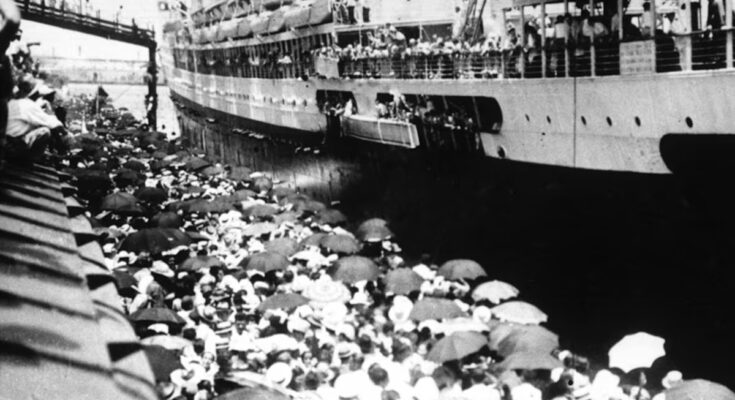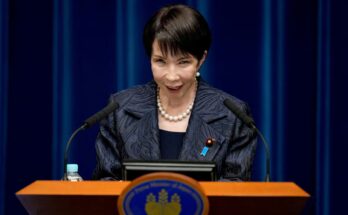Half a century ago the “biological event” occurred in Spain, a euphemism to refer to the death of General Franco. The longevity of his dictatorial regime and the personalism that characterized him had made the simple formulation of a fact as natural as his death taboo. Francoism without Franco did not seem feasible. But the next scenario was a mystery. Uncertainty prevailed. The rehearsals and improvisations were modulated and nurtured as they progressed.
For Mexico, with this biological fact the main objective condition that had motivated decades without official relations with Spain has disappeared. For the republican exile, its own essential condition disappeared: the one that had generated it and determined the literal impossibility or moral impediment of a return. But because facts, however biological or objective they may be, are surrounded by subjectivities marked by circumstances and the complexity of political and human relationships, events have taken a form of their own and have been irreverent compared to expectations.
Franco’s death was followed by a provisional period of 16 months. On the Mexican side, consistency and loyalty have prevented normalcy. However, the desire to normalize relations with a democratic Spain was a priority. The Mexican authorities, while waiting, discreetly pulled the strings. There was no way to remain on the fringes of the new Spanish scenario.
By virtue of this desire, discreet but generous support had been provided to the entire anti-Franco opposition, conceived in its broadest spectrum. Trips to Mexico by Santiago Carrillo, Felipe González and Enrique Tierno Galván followed, with Rodolfo Echeverría Ruiz as principal orchestrator. He was also a key emissary in contacts with anti-Francoism in Paris and Rome and, later, with some forces that renewed Francoism in Madrid.
During the last years of the regime, the Francoist authorities left evidence of their concern for the republican legitimacy, almost four decades after having proclaimed its liquidation. In a meeting with Henry Kissinger, held on October 4, 1973 at the Waldorf Towers in New York, the Minister of Foreign Affairs, Laureano López Rodó, slavishly offered Spanish cooperation in the Middle East and Latin America, aiming in particular at Cuba. The powerful Secretary of State clearly expressed Washington’s intention to be active in Latin American politics. A few weeks ago the coup d’état took place in Chile. Kissinger himself had played a central role.
Franco’s offer can be seen in this exceptional context. Then a significant exchange took place. López Rodó said: “As you know, Mexico still recognizes a government that existed 37 years ago.” “I didn’t know,” Kissinger replied tersely. “This is, perhaps, a problem with which you can help us,” the minister said. The American closed the conversation by limiting himself to a vague commitment: to report the matter to the Mexican Foreign Minister. In Franco’s eyes, the response frustrated all expectations. The consideration of Mexican recognition of republican legitimacy as a “problem” illustrates the insecurity resulting from a lack of general legitimacy dragged down by the Spanish war itself and which resurfaced in delicate circumstances. In this sense, the support of the Anglo-Saxon powers (first London, then Washington) has always been the antidote. And they turned to the United States again, just as they had done twenty years earlier with the acceptance of military bases on Spanish soil (1953) and a decade later (1963) by sending as ambassador someone closely related to President John Fitzgerald Kennedy’s family, such as Antonio Garrigues Díaz-Cañabate. Precisely this has raised the question of the recognition of the Republic by Mexico as the second most important Republic for its work, after the renegotiation of the agreements on the bases and before the question of Spain’s entry into the European Common Market. A very significant priority. But, on American soil, Spanish initiatives towards the Latin American sphere would find a limit in the clash with permanent tics towards the region’s historical competitor.
The latest executions of the Franco regime have motivated strong international condemnation. Mexico even called for Spain’s expulsion from the United Nations. The reminiscences were evident with the Mexican protagonism, three decades earlier, in the Spanish exclusion from the organization. The responsibility of the Mexican president, Luis Echeverría Álvarez, in the Tlatelolco massacre of 1968 was then recalled by the apparatus and press of the Franco regime.
A demonstration was called in the Plaza de Oriente, with Franco appearing on the balcony of the Royal Palace. Same place, same ritual and same motivations as thirty years ago: entrenching oneself in patriotic mobilization in the face of international condemnation. It would be the dictator’s last public appearance.
Franco’s death did not lead to the immediate establishment of relations. While the Mexican government wanted to demonstrate the democratic quality of the post-Franco regime – and ensure that there would be no retaliation – the Spanish authorities denied its previous legitimacy and democratic credentials. Given the approach of the end of the six-year period, it was appropriate to wait for the constitution of the new executive.
As soon as the government presided over by José López Portillo took office, at the end of 1976, normalization was quickly sought. However, it was not possible to establish new relations while continuing to recognize the government of the republic in exile. For emotional and national coherence reasons, it has been difficult to break with Republican leaders. The solution was to lead them towards self-dissolution. They were received with praise at the presidential residence of Los Pinos, where resistance was finally overcome and relations between Mexico and the Spanish Republic were cordially canceled. The aforementioned self-dissolution followed, which for its supporters marked the end – in formal terms – of the Second Republic.
It had long been clear that the symbolic government of the republic in exile would not be the body through which Spanish democracy would pass after the dictatorship. In reality it was a truly ghostly government, with no territory or population to govern. And, as has been noted, Mexico had already come into close contact with the active political forces of anti-Francoism.
Calling for democratic elections seemed like a sufficient step for Mexico. To demand more would have meant setting yourself up as a sort of judge of Spanish life. It also involved the risk of arriving late. Both parties were interested in normalization, with the understanding that the heterogeneous and deep historical ties defined them as two countries that could not be ignored. On the Mexican side, coherence has been completed. Procrastinating further was no longer a credit to prestige.
On March 28, 1977, after a quick agreement between the Foreign Ministers (Santiago Roel and Marcelino Oreja) at the Hotel George V in Paris, new diplomatic relations were established between Mexico and Spain. This was a new facility, not a renovation in a strict sensegiven that Mexico had always had formal relations with another Spain: that of exile. The following June 15th the first democratic elections were held after the long dictatorship. This also seemed to confirm, in principle, the end of the long night of exile. However, the end of the original condition of exile confirmed that the condition of exile, as such, is neither expired nor reversible. An exile is impossible.
Months later the mutual institutional visits would take place, inaugurated by the first president – and decisive actor – of the new Spanish democracy: Adolfo Suárez. But that was another story, an epilogue to what has been summarized here and a prelude to the beginning of a bilateral normalization that did not overshadow, in its inevitable and healthy continuation, the exceptional nature of its nature. A story shared in greater harmony or disagreement, but always emotionally linked.



